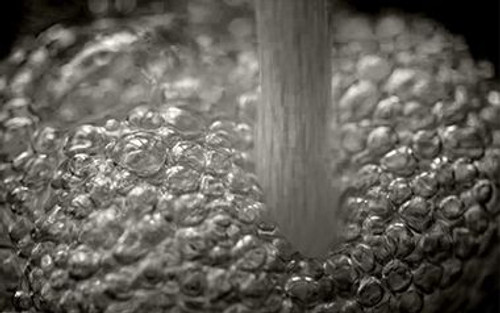What is Greywater?
Greywater is defined as wastewater that is produced domestically without the inclusion of sewage. Sewage differs from greywater mainly due to its greater density of organic loading. With effective purification, greywater can be of great use to various applications such as irrigation, toilet flushing, laundry, etc.
Treated greywater can be utilized for the irrigation of both consumable and non-consumable food producing plants. Nutrients such as nitrogen and phosphorus are found in greywater and are offered as fantastic food source for these plants. Greywater used for irrigation should be purified because it still includes a lot of particulates and would block the irrigation system otherwise.
Greywater Treatment Process
Grey water is easier to purify and reuse as compared to wastewater since it generally contains much less concentrations of pathogen. For this reason, it always recommended to keep grey water separate from wastewater for sanitation purposes. Sewage, or black water is the result of combining grey water and wastewater, and should be treated in a sewage treatment facility.
Elevated levels of organic substances, are found in grey water from household and building appliances. Ultrafiltration (or other filtration methods) is required to eliminate these contaminants prior to being discharged into a grey water treatment system. If this is too complicated to accomplish, it could be redirected to the sewage system or a nearby sewer.
Treatment of greywater may include:
- Pre-filtration
- Sedimentation
- Flotation
- Post-filtration or UV disinfection
[custom-specifications]
If you choose to store grey water then it must be utilized in a few days otherwise the organic matter in the water will cause it to decompose. This type of recycled grey water is not recommended to consume, but can be used for cleaning or toilet flushing after going through a series of treatment stages.
The usage of greywater is controlled due to the risk of disease spreading within your domestically and overseas.
Infections can be transmitted if unregulated greywater is kept or utilized in such a way that it comes into touch with wild animals, pets, or children.
[/custom-specifications]
[custom-features]
Greywater Filtration Systems
Our greywater treatment systems are designed to reclaim wastewater efficiently, which preserves freshwater sources and reduces the amount of wastewater entering sewers or treatment plants. This greatly benefits society by playing an important role in conserving quality water in many industries such as industrial facilities, food processing, manufacturing plants, municipals, refineries, mining zones, hotels, etc. Due to the complexity of our greywater treatment systems, we believe they will be perfectly suited to commercial and industrial-scale systems.
Greywater Treatment with Membrane Bioreactor Technology
Membrane bioreactor technology are growing in popularity in condensed urban areas, where the availability of space is lower and of higher value, which demands compact and dependable solutions. Membrane bioreactor technology combines membrane filtration with the activated sludge process, which brings specific advantages in comparison with standard purification systems:
- Great effluent quality and minimal production of sludge
- Highly stable procedure and compact makeup
Membrane bioreactors are perfect substitutes for media filters and clarifiers with the capacity to lower reactor size by integrating physical membrane parameters with biological treatment. These features allow MBR to be an effective solution for greywater recycling and for a greywater treatment system.
Greywater Treatment with Ultrafiltration Technology
Ultrafiltration systems act as barriers to microbiological organisms such as viruses, bacteria, coliforms, etc. These systems utilize filtration membranes that separate unwanted substances from the feed water and rejecting them to the sewer. The filtered feed water is then dosed with small amounts of chlorine, similar to tap water, for industrial and commercial disinfection of the reserved treated water. This purified water is then ready to use in various applications.
[/custom-features]
[custom-usage]
Two major advantages of greywater use are:
Reusing wastewater is necessary for sufficient and sustainable management of water resources. Greywater is often used as an alternative water source in many regions around the world (mostly arid), where the most demand of water is in the dry period. The promising ecological advantages of greywater include:
- Freshwater savings due to less needed extractions from rivers and aquifers
- Lower amounts of energy used and less chemical pollution from water treatment
- Deep drainage and recapture of nutrients
- Reduced environmental impact from water treatment plants and septic tanks
[/custom-usage]
-
Thank you
Grey water treatment is very important. Thank you for informing me
- Related Project1:
- https://pureaqua.com/media-filtering-system-31-gpm-qatar/
- Related Project2:
- https://pureaqua.com/media-filtration-systems-40000-gpd-oman/
- Related Project3:
- https://pureaqua.com/high-brackish-ro-plant-10000-gpd-usa/
- Related Project4:
- https://pureaqua.com/ultrafiltration-system-28800-gpd-colombia/
 ENGLISH
ENGLISH
 ESPAÑOL
ESPAÑOL العربية
العربية PORTUGUÉS
PORTUGUÉS FRANÇAIS
FRANÇAIS













